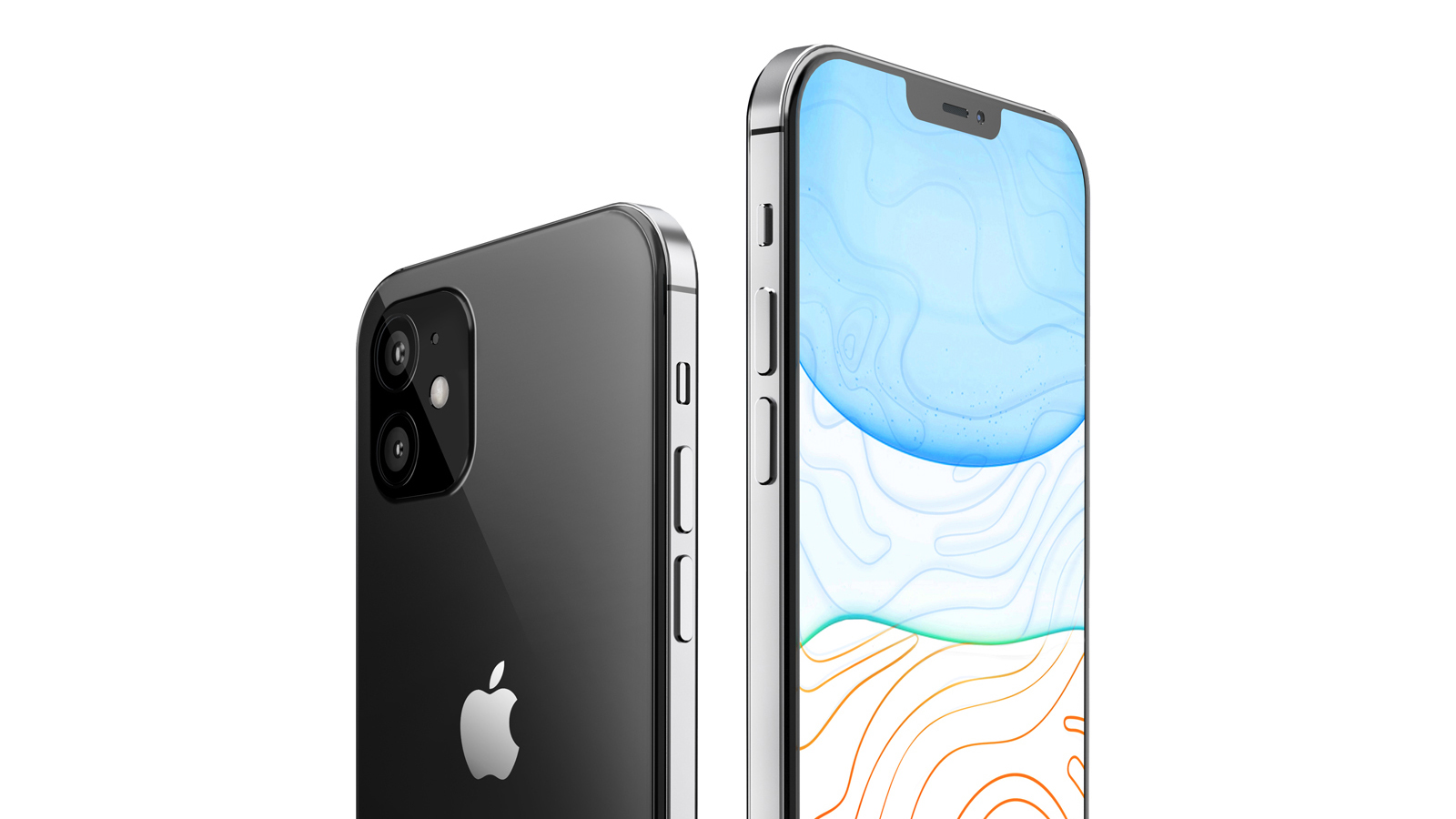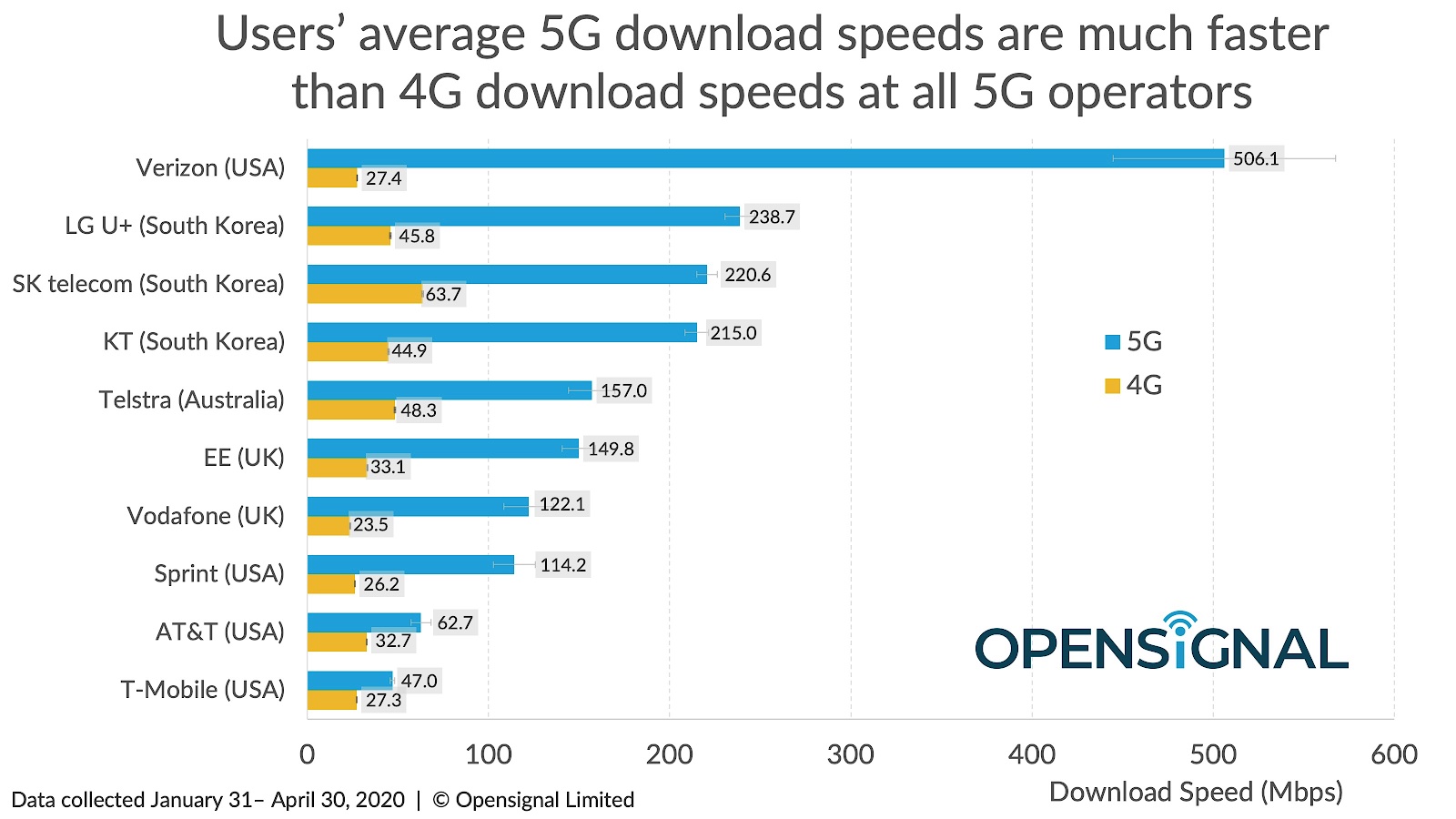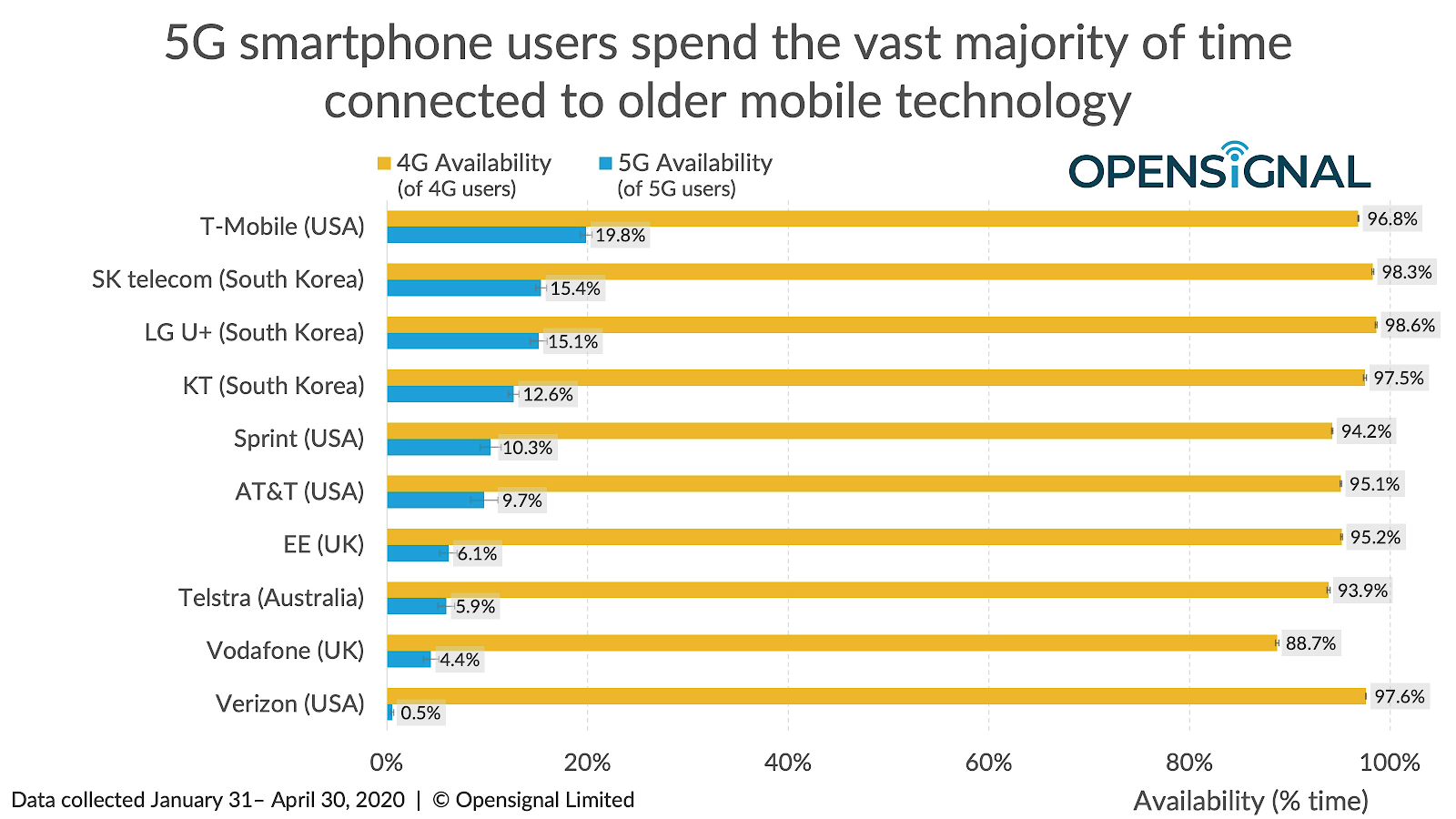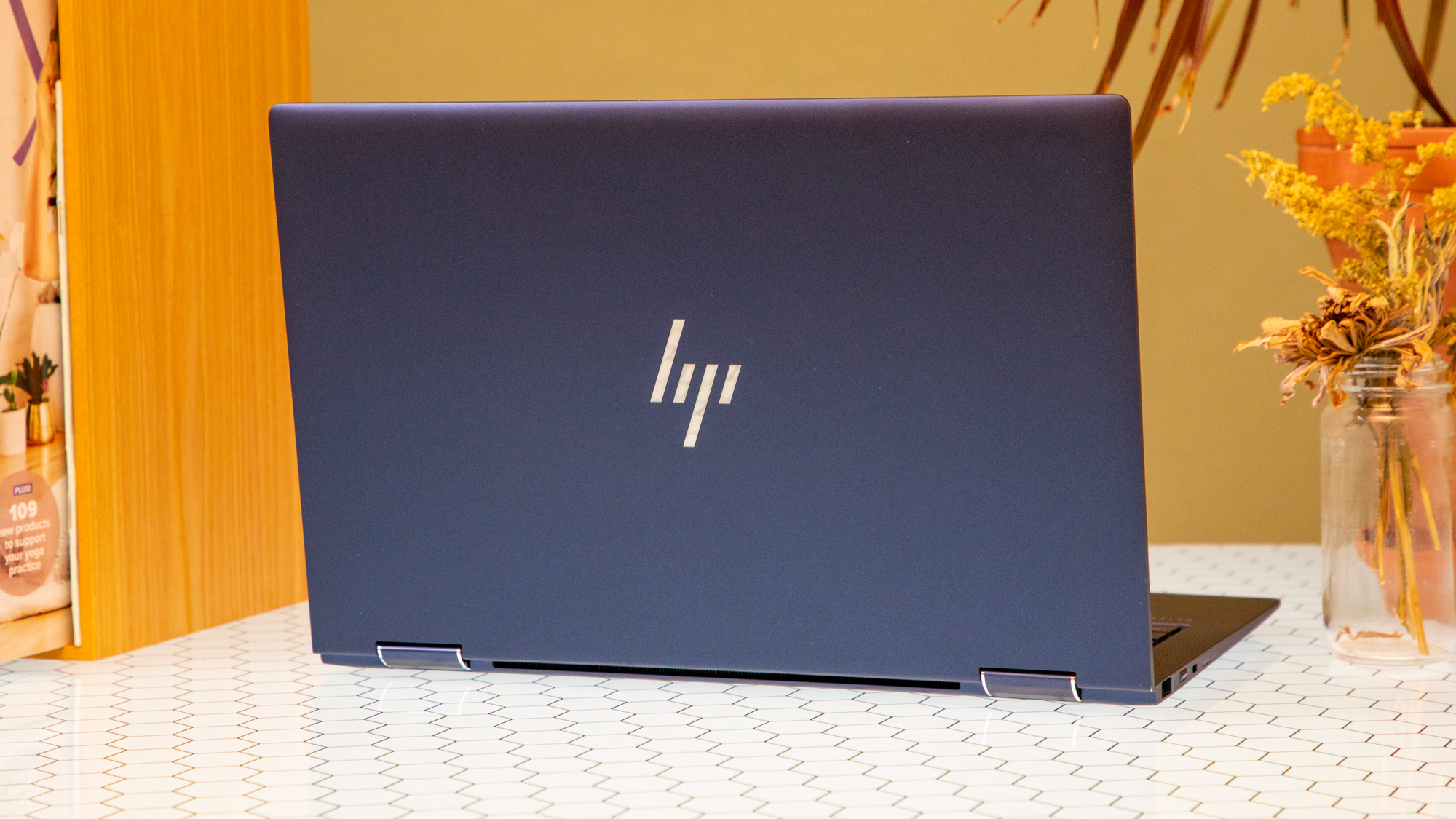iPhone 12 and 5G — new report reveals best and worst carriers
A new OpenSignal report reveals that T-Mobile offers the broadest 5G availability, but Verizon delivers the fastest speeds

The iPhone 12 will be the first Apple smartphone with 5G connectivity built in when it launches this fall, so naturally prospective buyers want to know which carriers will offer the best 5G performance.
OpenSignal has just released a new report that measures the global 5G experience for ten mobile operators, and there’s good news and bad news.
- The best 5G phones right now
- iPhone 12: Release date, specs, price and leaks
On the plus side, every US carrier’s 5G network offers significantly faster performance than 4G. The bad news is that 5G speeds vary widely from one provider to the next — and so does the availability of 5G signals.
As you might expect, Verizon’s 5G network, which uses high-speed mmWave technology, turned in the highest average 5G download speeds. Verizon delivered 506.1 Mbps, which blows away Sprint (114.2 Mbps), AT&T (62.7 Mbps) and T-Mobile (just 47 Mbps).

That speed gap isn't a surprise. Verizon has pegged its initial 5G strategy on millimeter wave, which delivers much faster speeds than LTE. Other carriers are using low- to midband spectrum initially, which delivers a more modest increase.
But here’s the caveat. Based on OpenSignal’s findings, Verizon’s 5G availability was just 0.9 percent, compared to nearly 20% for T-Mobile. That’s because T-Mobile’s 5G network network, which uses the 600 MHz band, reaches much further than Verizon’s short-range mmWave network. T-Mobile launched its nationwide 5G network in December, and just announced further expansion of coverage into the Sa Francisco Bay Area, Sacramento, Calif., and Tampa and Orlando in Florida.
AT&T’s network, which operates on 850MHz spectrum, also offers relatively good 5G coverage compared to Verizon, with an availability rating of 9.7%. Sprint’s 5G availability was a little better at 10.3%; its network operates on the 2.5GHz band, which is also known as mid-band spectrum.
Sign up to get the BEST of Tom's Guide direct to your inbox.
Get instant access to breaking news, the hottest reviews, great deals and helpful tips.
The good news for T-Mobile is that now that it has acquired Sprint it should be offer both better speeds and better coverage before long once it is able to combine networks. T-Mobile has already incorporated Sprint's 5G coverage into its own network in Philadelphia and New York City, so that its network in those two cities uses low band, mid-band and mmWave technology. That should mean faster speeds and wider availability, though we haven't been able to verify that yet, due to shelter-in-place constraints.

Verizon isn’t standing still either; the carrier says that it is doubling its mmWave coverage from 30 cities to 60 cities by the end of the year. It will also expend coverage in the 30 cities already launched, and Verizon says that it will offer mid-band 5G during the third quarter of this year. Plus, Verizon just turned on 5G upload speeds, which is about 30% faster than uploads over 4G LTE.
AT&T announced in April that its 5G network now covers more than 120 million people and 190 markets. It's on target to have a nationwide reach of its own by mid-year.
iPhone 12 and 5G
So which 5G network will be best suited for the iPhone 12? Rumor has is that the regular iPhone 12 and iPhone 12 Max will only support sub-6GHz networks, so right now AT&T, Sprint and T-Mobile would be the optimal carriers for those two devices.
The iPhone 12 Pro and iPhone 12 Pro Max are both expected to support mmWave and sub-6GHz, so they should fly on Verizon’s network. However, there is still a lot of time between now and October, when the iPhone 12 lineup will reportedly launch.
So the carriers will have to continually improve their 5G experiences to accommodate what the iPhone 12 and iPhone 12 Pro can deliver.
Mark Spoonauer is the global editor in chief of Tom's Guide and has covered technology for over 20 years. In addition to overseeing the direction of Tom's Guide, Mark specializes in covering all things mobile, having reviewed dozens of smartphones and other gadgets. He has spoken at key industry events and appears regularly on TV to discuss the latest trends, including Cheddar, Fox Business and other outlets. Mark was previously editor in chief of Laptop Mag, and his work has appeared in Wired, Popular Science and Inc. Follow him on Twitter at @mspoonauer.

